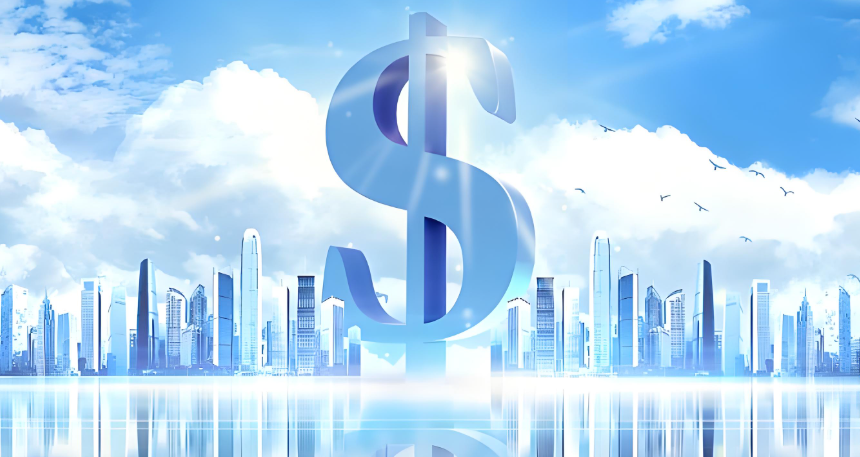U.S. Long-term Inflation Expectations Hit Record Highs
Advertisements
The latest data released this Friday shed light on the shifting landscape of consumer confidence in the United States, particularly as it concerns the Michigan Consumer Sentiment Index. For the month of January, this index dropped to an initial value of 73.2, falling short of the anticipated 74.0 and showing a decline from December's preceding figure, which was also 74.0. This drop in consumer sentiment signals a growing unease among Americans regarding their economic prospects.
Diving deeper into the components of the index, we find that while the current conditions index recorded an initial value of 77.9—marking its highest level since April—the expectations index saw a significant slump, registering an initial value of 70.2, its lowest since July. The discrepancy between these two indices highlights a clear divergence in consumer sentiment; while people feel more secure about their current situation, there is a pervasive pessimism regarding future economic conditions.
One of the most alarming findings was the steep decline in the expectations index, driven by concerns that half of the surveyed individuals anticipate an increase in unemployment rates over the next year. This sense of foreboding is compounded by dwindling expectations for income growth, further exacerbating fears about future financial stability.
Inflation expectations have also soared, reaching levels not seen since the financial crisis of 2008. Specifically, long-term inflation expectations for the next five to ten years increased to 3.3%, surpassing the expected figure of 3.0% and aligning with the peaks experienced in June 2022. The expectations for inflation one year ahead also took a notable jump, registering at 3.3%, significantly above the forecasted 2.8%. The consistency of these figures raises critical questions about the persistence of inflationary pressures in the economy.

Crucially, the five-year inflation expectations reported by the University of Michigan had previously remained relatively stable, fluctuating between 2.9% and 3.1% during more stable economic periods. However, the abrupt spike in June 2022 coincided with an inflation peak, catching the eye of investors and policymakers alike. This alarming increase has been interpreted by many as a potential indicator for long-term inflation expectations deteriorating, leading to broader concerns about the economic climate in the United States.
In response to inflationary fears, the Federal Reserve enacted a series of aggressive monetary policies, including a campaign of significant interest rate hikes aimed at curbing inflation. This intervention appears to have been somewhat effective, as the five-year inflation expectations began to taper off, suggesting that market fears regarding unchecked inflation were alleviated, at least in part, by the Federal Reserve's actions. These developments demonstrate the crucial role that monetary policy plays in shaping consumer expectations and stabilizing market sentiments regarding inflation.
The insights from the latest report highlight a critical phenomenon: consumers' expectations of inflation are closely intertwined with their confidence in future policy directions. In the current, intricate economic landscape, a growing percentage of consumers are voicing concerns about potential tariff increases. Notably, nearly one-third of respondents in the survey self-identified their anxieties regarding tariffs, a significant rise from 24% in December. This increase indicates a shift in consumer attitudes as they grapple with the possible implications of tariffs on the prices of imported goods, which they believe would ultimately translate into higher costs for consumers and reinforce their worries about inflation.
Moreover, disparities are evident across varying demographic groups, with inflation expectations climbing particularly among lower-income Americans. While uncertainty surrounding inflation has surged over the past year, it remains comparatively low when juxtaposed with the tumultuous inflationary environment of the 1970s.
Political sentiment also plays a role in shaping these economic attitudes. As Republican confidence in the economy appears to rise, Democratic respondents have expressed growing despondency, particularly regarding inflation. This partisan divide highlights how different groups perceive economic realities, ultimately impacting consumer behavior to varying degrees.
Recent consumer surveys have revealed a consistent trend from December, with approximately 22% of respondents affirming that purchasing durable goods now is a prudent strategy, enabling them to sidestep potential price hikes in the future. This sentiment closely mirrors historical behaviors seen during inflationary episodes, notably reminiscent of the 1970s when consumer preemptive buying became commonplace. For context, a striking 41% of consumers adopted this approach in 1978, indicating a shift in consumer psychology during periods of heightened inflation.
Analysts caution that the present climate is fraught with concern. The emerging trend of inflation-related anxiety amongst consumers appears poised to spiral as more individuals adopt preemptive purchasing behaviors. Such collective phenomena have the potential to disrupt the equilibrium of supply and demand within the market, potentially propelling inflation into an unmanageable upward trajectory.
The implications of consumer confidence stretch beyond mere sentiment; they play a pivotal role in dictating the trajectory of economic growth in the months ahead. When bleak outlooks dominate consumer sentiments, there tends to be a tightening of wallets and a reduction in everyday spending, stifling the momentum of consumption essential for economic recovery. Conversely, when optimism prevails, it collectively energizes consumer behavior, fostering a cycle of spending that propels the economy forward.
In summary, the recent findings from the University of Michigan signal a noteworthy shift in consumer sentiment as fears of rising inflation and economic volatility take center stage. As stakeholders in the economy monitor these trends closely, it becomes increasingly crucial to address the nuanced dynamics of consumer psychology that play crucial roles in shaping economic outcomes.
Make A Comment